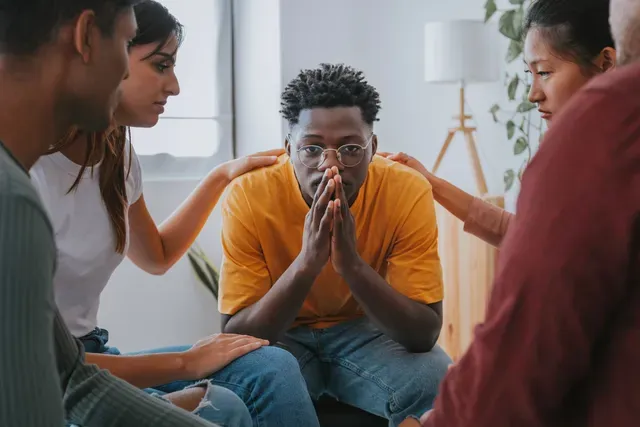Anxiety
Mental Health Counseling located in Commack and New York, NY

About Anxiety
Anxiety can affect anyone at any stage of life. It’s a natural response to stress, but when it becomes overwhelming, it can interfere with your daily routine, relationships, and overall well-being. At Mind Centered Counseling, led by Ashley Villacis, LMHC, the team offers comprehensive anxiety counseling to help you regain control of your life. Whether you’re experiencing general anxiety or dealing with a specific anxiety disorder, call the Commack, New York, office or request an appointment online. Telehealth options are available.
Anxiety Q&A
What are the common signs and symptoms of anxiety?
Anxiety manifests in various ways, and it’s important to recognize the signs so you can seek help when needed.
Physical symptoms of anxiety
Common physical signs of anxiety may include an increased heart rate, sweating, trembling, or a feeling of restlessness. Some people experience headaches, stomach issues, or muscle tension, which can make daily activities feel exhausting.
Emotional and cognitive symptoms
Emotionally, anxiety often brings feelings of worry, fear, or dread. Many people report feeling overwhelmed as if they’re constantly on edge. Cognitive symptoms include racing thoughts, difficulty concentrating, or constantly thinking about the worst-case scenarios.
If these symptoms persist over time and begin to affect your daily life, it may be time to seek professional help.
Are there different kinds of anxiety?
Anxiety is not a one-size-fits-all experience. There are various types of anxiety disorders, each with its own set of challenges.
Generalized anxiety disorder (GAD)
People with GAD often feel excessive worry about a range of daily situations, from work to personal relationships, even when there’s no clear reason to be anxious. This constant worry can lead to physical and emotional exhaustion.
Social anxiety disorder
Social anxiety is characterized by an intense fear of being judged, embarrassed, or rejected in social situations. This fear can lead individuals to avoid social gatherings, work meetings, or even everyday interactions, making it difficult to maintain relationships.
Panic disorder
Panic disorder involves sudden and intense episodes of fear, known as panic attacks. These episodes can cause shortness of breath, chest pain, dizziness, and a feeling of losing control. People with panic disorder may live in fear of the next attack, which can severely limit their activities.
Can counseling help combat anxiety?
Counseling is a powerful tool in managing and reducing anxiety symptoms. The Mind Centered Counseling counselors use evidence-based approaches to help individuals identify the root causes of their anxiety and develop coping strategies.
Personalized anxiety management plans
In counseling, each person receives a tailored plan based on their unique needs and experiences. Techniques such as cognitive-behavioral therapy (CBT) are commonly used to challenge negative thought patterns and replace them with healthier, more balanced thinking.
Stress-reduction techniques
We also teach practical stress-reduction techniques, such as mindfulness, breathing exercises, and relaxation strategies. These tools can be used in real-time to help reduce anxiety in moments of high stress.
Building long-term resilience
Counseling isn’t just about short-term relief; it’s about building long-term resilience. Through regular sessions, individuals can gain greater self-awareness and confidence in managing their anxiety. This, in turn, leads to improved quality of life, better relationships, and increased emotional well-being.
If you or a loved one is struggling with anxiety, don’t wait to seek help. The Mind Centered Counseling team is here to support you on the path to a calmer, more fulfilling life. Reach out today to schedule a consultation and take the first step toward reclaiming your peace of mind.
Mind Centered Counseling
Commack Address: 169 Commack Rd, STE 382, Commack, NY 11725
Queens Address: 98-02 218 Street Queens Village, New York, NY 11429

